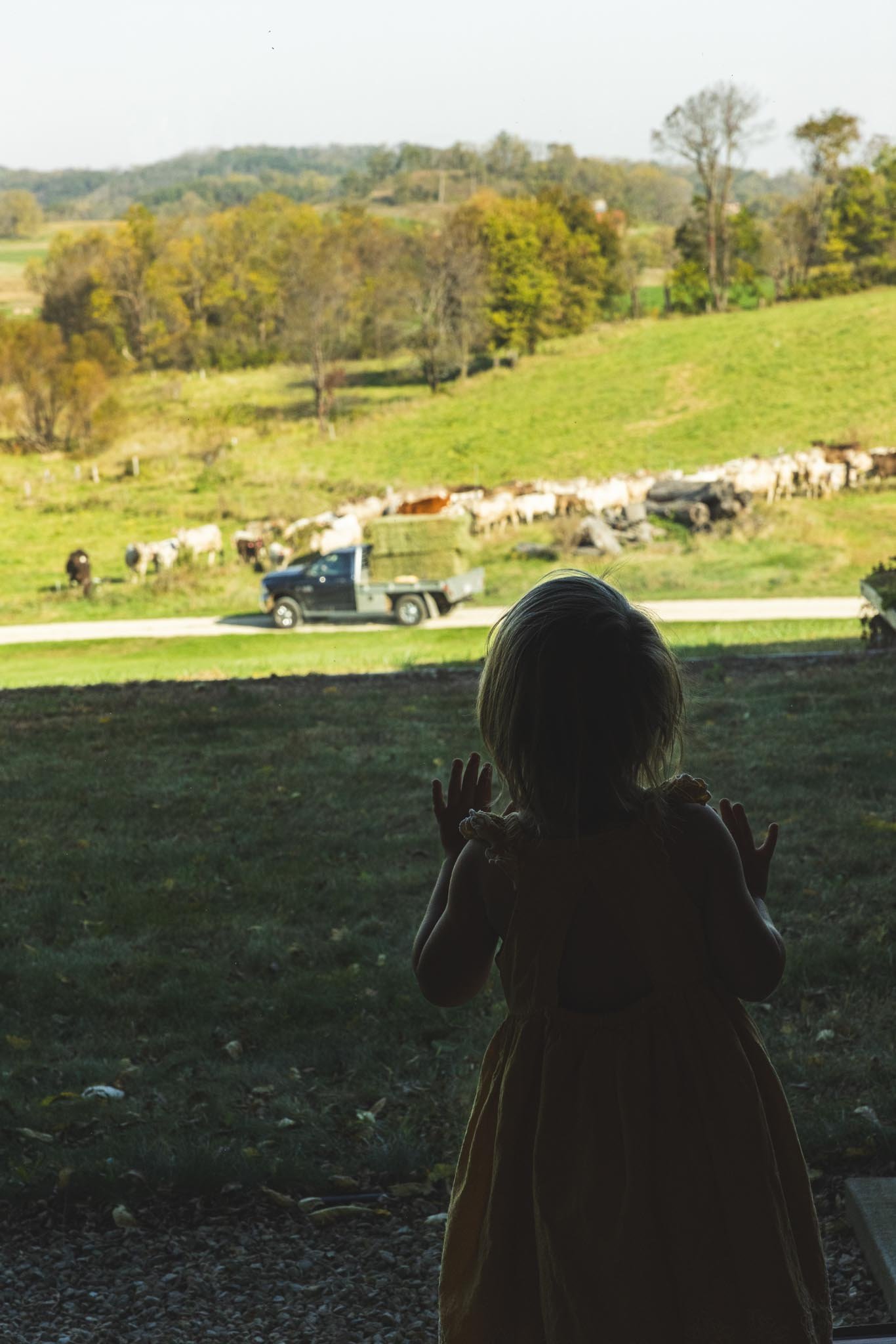HILLSIDE PASTURES
Agroforestry Demonstration Farm
Savanna Institute’s Spring Green Campus
Elderflower is a native perennial in Wisconsin’s Driftless Region where the Savanna Institute runs the Elderflower Retreat at Hillside Pastures, one of its Spring Green Campus demonstration farms. The campus is made up of four farms that demonstrate agroforestry in different contexts and scales. At Hillside Pastures, the farm demonstrates silvopasture, the practice of integrating livestock into treed pastures.
ABOUT THE FARM
Acres: 78 | Established: 2022 | Located: Spring Green, WI | Partners: Daniel and Linda Marquardt, Driftless Area Land Conservancy, Seven Seeds Organic Farm, USDA NRCS
RESEARCH AND DEMONSTRATION:
Silvopasture by addition and silvopasture by subtraction
Trees that will be planted for silvopasture by addition: bur oak, black oak, shagbark hickory, honey locust and persimmons
Managed grazing with White Park cattle by Seven Seeds Organic
HISTORY OF THE LAND
The Elderflower Retreat at Hillside Pasture is located on traditional Ho-Chunk land. The flower and berries of the elder plant are medicinal for Indigenous people in the region. Many native people and elder plants were removed from this area in the 1800s to make way for conventional farms. The Savanna Institute continues to work with a regional network of partners to build meaningful relationships with the Ho-Chunk Nation and cultivate elder as a native perennial for the ecosystem.
FARM RULES
Please remember that Hillside Pastures is a working farm. Guests shall observe farm rules at all times.
Private residence and driveway
No pets except service animals
Do not pet or feed the animals
Do not harvest without permission
Biosecure area, clean shoes only
Caution: all fences are electrified
No smoking
AG-TOURISM LIMITED LIABILITY LAW • WISCONSIN ACT 269
A person who observes or participates in an agricultural tourism activity on this property assumes the risks inherent in the agricultural tourism activity. Risks inherent in the agricultural tourism activity may include conditions on the land, the unpredictable behavior of farm animals, the ordinary dangers associated with equipment used in farming operations, and the potential that a participant in the agricultural tourism activity may act in a negligent way that may contribute to injury or death. The agricultural tourism provider is not liable for the injury or death of a person involved in an agricultural tourism activity resulting from those inherent risks.







